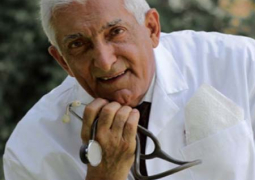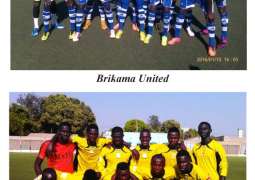Stakeholders drawn from various communities within the Greater Banjul, in collaboration with the Department of Fisheries, on Monday convened a daylong validation workshop of the Water, Sanitation and Hygiene (WASH) management plans at the TANGO conference hall in Kanifing.
The workshop, meant to validate the draft document prepared by the oyster/fishing communities of Kamalo, Old Jeshwang, Brufut and Kartong, was funded by the USAID BA-NAFAA project.
In his welcome statement at the opening ceremony, Dr Bamba Banja, USAID BA-NAFAA WASH project coordinator who gave a background of the project, said it is a five-year regional initiative supported by the American people through the US Agency for International Development (USAID), West Africa Regional Mission.
The project, he added, is implemented through the University of Rhode Island URI-USAID cooperative agreement on sustainable coastal communities and ecosystems success.
Dr Banja stated further that in 2011, Water, Sanitation and Hygiene WASH component was added to the award to the tune of US$759,126.
According to him, the water and sanitation component of the USAID/BaNafaa project was incorporated to support needed water and sanitation activities linked to the artisanal fishery and community fishery centres and oyster landing sites.
The objectives, Dr Banja explained, are to improve water supply and sanitation in approximately seven CFCs/Oyster landing and processing sites, to improve sanitary handling of seafood supply and to maintain high quality seafood entering both the local and processing establishments.
‘‘The major WASH activity in each selected site public health and sanitation transformation PHAST is aimed at training CFC management committees, user groups and local government authority centering on personal hygiene, waste management and maintenance of WASH facilities,’’ he stated.
In his official opening remarks, Nfamara Darboe, assistant director at the department of fisheries, said the policy legal and management framework for fisheries in The Gambia under the Ministry of Fisheries are all geared towards achieving the policy objective of the fisheries sector with a long-term utilization of the marine and inland fisheries resource, aimed at improving nutritional standards of the population, increase employment opportunities in the sector and improve and expand the participation of Gambians in the fisheries sector.
These initiatives, he said, are strongly linked to key national development objectives of increased food self-sufficiency and security as enshrined in the PAGE and Vision 2020 blueprint.
“In the Gambia, fisheries provide the main source of animal protein for the average rural family,” he said.
“The average annual fish consumption can be as much as 25kg per capita. In many rural fishing serves a social safety net when farming turns unproductive due to depleted soil, drought, disease or other factors.”
Mr Darboe noted that none of these policy objectives would be satisfactorily realized without best practices in the whole fish value chain, observing that one of the most important of these best practices relates to the way fish are handled, stored, processed and marketed.
Fish in the sea, he said, are perfectly sterile and any contamination leading to spoilage and loss starts only after contact with humans.
“Therefore, adherence to best practices relating to sanitation and hygiene, particularly at the landing sites where this human-fish contact is closest, will translate into fulfillment of the above mentioned policy objectives,” he stated.
Commenting on the commitment of the Government of The Gambia in the fishing sector, Mr Darboe pointed out that efforts have been put in place to increase the contribution of the fisheries sector to the GDP of the country.
This, he added, would require increase in exports and decrease in imports of fish and fisheries products.



